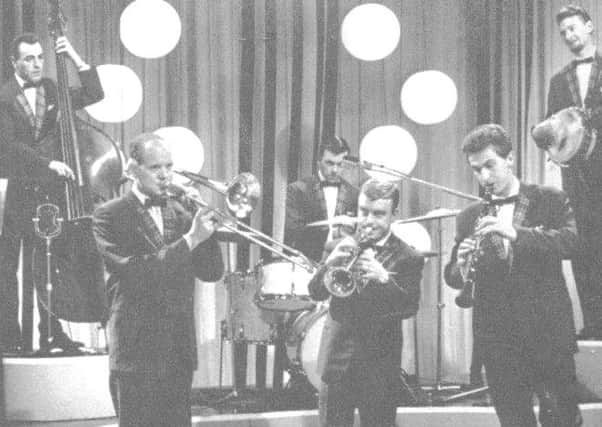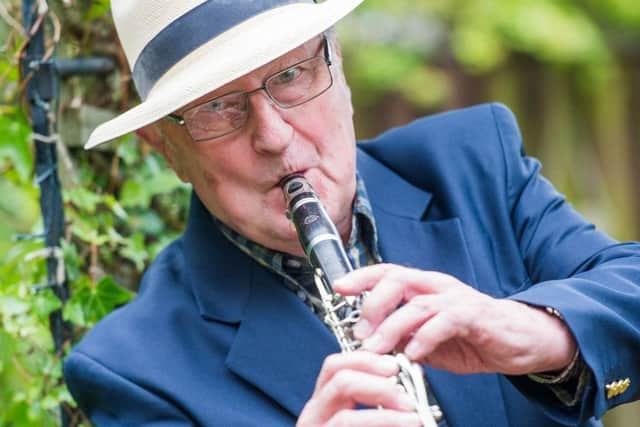Jazz star's account of Scottish supergroup's glory days


But in 1963, at the height of their fame, the Clyde Valley Stompers mysteriously disappeared from the music scene.
Now Peter Kerr, who was recruited as bandleader aged just 20, has revealed for the first time the story of what happened to the band, which under his direction stormed its way into the UK Top 30 with a jazz version of Prokofiev’s Peter And The Wolf commissioned by George Martin and recorded at the then little-known Abbey Road Studios.
Advertisement
Hide AdAdvertisement
Hide AdAlong the way, Kerr, now 75, recounts the exciting journey of forming his first jazz band, the Hidden Town Dixielanders, in his home town of Haddington, East Lothian, and practising in his grandparents’ cowshed, to quitting his boring civil service job to accept the offer of a contract for the band to play in Germany, touring the UK in a tiny van and rubbing shoulders with then unknown artists such as the Beatles and Dusty Springfield, who would joke and swap anecdotes.


Kerr said he had decided to write Don’t Call Me Clyde! – Jazz Journey Of A Sixties Stomper after repeated demands from younger jazz fans who kept asking him what had happened to the band.
Recalling the early days, Kerr, a clarinettist, said: “Playing was a pleasure. None of us regarded it as a job. Essentially we were getting paid for a hobby.
“I hated the civil service, so when we got the offer to tour when I was 19 it was like someone exploding the door of a prison open to let me out.”
While in Mannheim, Germany, with the seven-piece Hidden Town Dixielanders, Kerr and his musicians met black American jazz legend, clarinettist and sax player Benny Waters, who had left the US to work in post-war Europe with its less discriminatory attitudes. He played guest spots with them.


“‘OK, kid,’ he’d mutter to me, ‘Stick yo’ foot out and steady ma pew while ah bugle up a mess o’ magic for the masses,” said Kerr.
Returning to the UK with the contract at an end, Kerr – facing unemployment and about to head out and seek casual farm work – received a telephone call from Ian Menzies, trombonist and leader of the Clyde Valley Stompers, asking him to audition for the band.
Advertisement
Hide AdAdvertisement
Hide AdKerr was asked to take over as bandleader when Menzies moved to Jersey. Kerr claims in the book that Menzies and two business associates kept control of the Clyde Valley Stompers name through a limited company, taking a significant share of the earnings.
However, Kerr has now revealed he was fired after trying to secure a pay rise for the band and a fairer way of sharing the profits.
“I did my best to save what was an iconic band disappearing off the scene. I got a real buzz of being in charge, helping to survive. Unfortunately the recipients of the income didn’t see it that way. They just saw the band as milch cows,” he said.
While a new line-up for the band was found, the trad jazz scene was soon overtaken by Beatlemania. Menzies emigrated to Canada, where he died in 2001.
Kerr went on to a successful career in record producing, achieving great success producing the Royal Scots Dragoon Guards playing Amazing Grace which sold 13 million copies worldwide, the biggest-selling instrumental of all time.
He now spends most of his time writing in East Lothian.